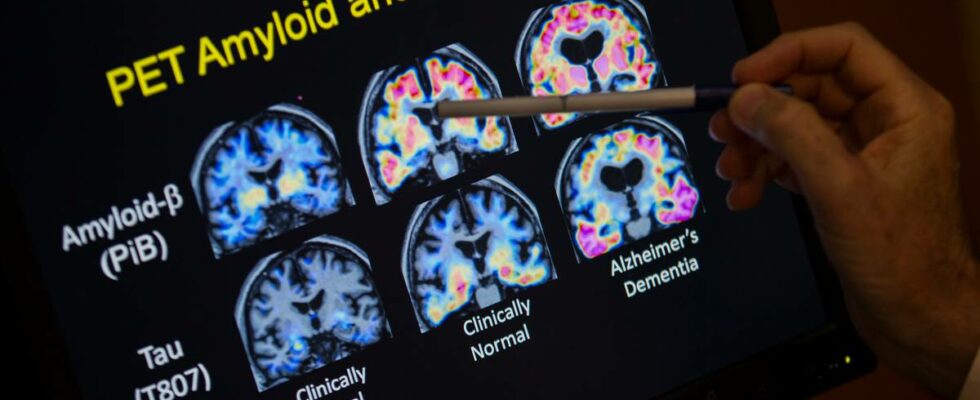On Thursday, the European Medicines Agency (EMA) approved a medicine for the treatment of early Alzheimer’s disease. It is the first time that the EU has approved medicine that can help against the disease. – I think this is a first step on the way to perhaps being able to get a treatment that can postpone the disease for a while, and further slow down its course, says Geir Selbæk, head of research and professor at the National Center for Health Research. Geir Selbæk at the National Center for Research and Health says the decision is a first step towards a treatment that can provide new hope for people with Alzheimer’s disease. Photo: Marianne Ytre-Eide / news Most common cause of dementia Alzheimer’s is the most common disease that leads to dementia. In Norway, over 100,000 people have dementia. Around 70 percent of these have Alzheimer’s. Symptoms of dementia: Significant forgetfulness: Dementia can cause forgetfulness to become noticeable and affect the ability to function in everyday life, especially for new events. Problems with carrying out tasks: Routines in everyday life disappear, and the ability to solve problems is reduced. Tasks and tools that used to be simple and familiar are now difficult to handle. Language problems: Forgets simple words or uses the wrong words, making sentences difficult to understand. Disorientation: Difficulty keeping track of which day, month or season it is. May have difficulty knowing whether it is morning or evening and may turn the clock around. Impaired judgement: May have problems dressing for the weather and season. It can become difficult to make purchases and manage finances. Difficulties with abstract thinking: It can be difficult to understand numbers and symbols, such as traffic signs. It can also be difficult to understand what kind of relationship you have with other people. Change in behaviour: Can change behavior, either suddenly or over a long period of time. The person may experience rapid mood swings, without an obvious cause. Flatter mood rent: may lose interest in what was previously important. They can become uninitiative and restless, and they can have trouble filling their time with something meaningful. Misplacing objects: May put objects in the wrong places, such as irons in the fridge or cups in the bathroom cupboard. Source: Helsenorge – There are no medicines that can cure a person from the disease. But there are approved medicines that may delay it, these have not previously been approved in Europe, says Selbæk to news. Among other things, several medicines have been approved in the USA, Great Britain, Japan and China, but until now have been rejected by the EMA. The EU reassessed the medicine – The scientific committee of the EMA has recommended that Leqembi be approved for a limited group of patients with early stage Alzheimer’s. So says Sigurd Hortemo, senior physician at the Directorate for Medical Products (DNP). DNP approves medicines in Norway. He adds that once the European Commission has made its final decision, DNP has one month to approve the drug in Norway. Sigurd Hortemo in the Directorate for Medical Products says that this is the first time that a medicine has been available that may be able to slow down the development of Alzheimer’s disease. Photo: Stian Lysberg Solum / NTB The medicine was initially not approved when it was up for assessment this summer. Among other things, there was a lack of documentation on efficacy and safety, there are major side effects and the price is high, according to Professor Geir Selbæk. When the medicine gets the green light, it means that the effect of the medicine is good enough to justify the risk of side effects in the target group. There are several things that must be considered when the EMA approves a new medicine, including how it will be financed and administered, explains Selbæk. Can slow down the disease According to DNP, the new medicine is unlike previous medicines, because it attacks the plaque in the brain that is seen in patients with Alzheimer’s. It is people with a mild degree of dementia, or in the stage before dementia develops, who are the target group for the medicine. But it is not yet known whether it removes the symptoms of disease, according to Selbæk. – It can at least postpone the onset of Alzheimer’s, it is believed. But the logic of removing the substance that you think causes the disease, if that is the case, then you can also stop the development of the disease and perhaps at least postpone it. He believes that more knowledge is needed about the medicine’s effect. – But it is a first step towards getting a treatment that would mean a lot and give new hope to people with Alzheimer’s disease. Norway is waiting for the EU Much remains to be done before it is available for people in Norway with Alzheimer’s disease, says Selbæk. But now that the EMA has approved the medicine, the Norwegian health authorities will also assess it. – As a general rule, they follow what EMA comes up with, says Selbæk to news. Published 14.11.2024, at 19.55 Updated 14.11.2024, at 20.02
ttn-69
The EU’s Medicines Agency has approved Alzheimer’s medicine – news Norway – Overview of news from various parts of the country

